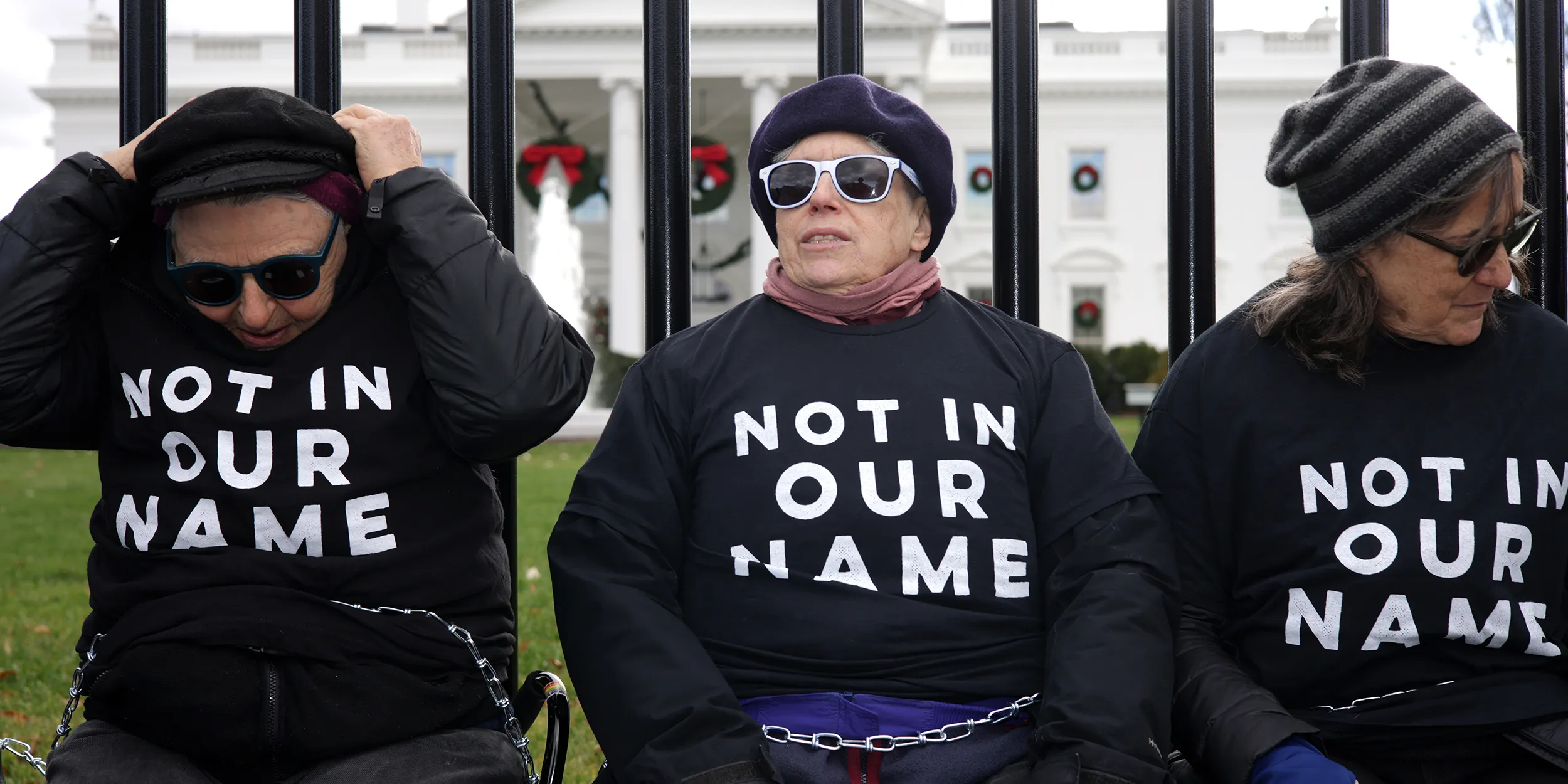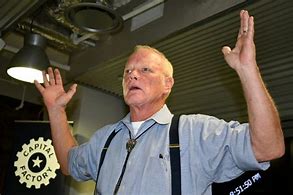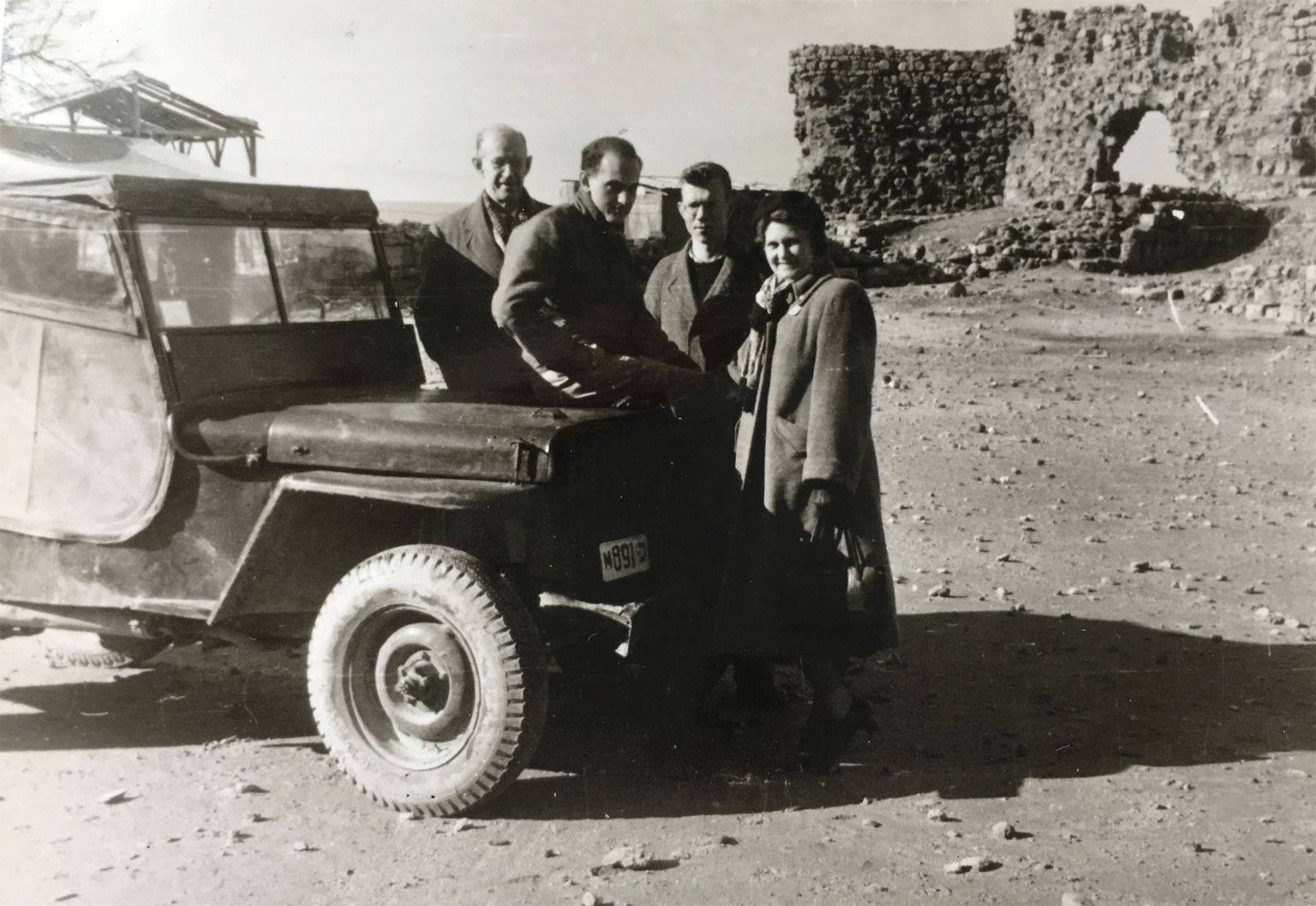
The Israeli government covertly meddled into American Jewish politics from the 1950s to 1970s and they did so to quash Jewish criticisms of the 1948 Nakba – the mass dispossession and expulsions of Palestinians during Israel’s founding – and Israel’s oppression of Palestinians.
Israeli diplomats who oversaw the furtive campaign were at one point assisted by Wolf Blitzer – today the host of CNN’s primetime show The Situation Room.
These are some of the findings of Our Palestine Question, an explosive new book by Emory University scholar Geoffrey Levin that offers historical perspective on today’s crisis in Gaza, especially as it plays out today among American Jews.
Since the murderous October 7 attacks by Hamas against Israel, and Israel’s overwhelming retaliatory attacks against Palestinian civilians in Gaza, American Jews have organized dramatic protests. They have demanded everything from a ceasefire and to an end to US military funding for Israel.
This diverse group of American Jews opposed to Israeli policy, and, at times, Israel itself, is drawing on a history of activism in the US that has long since faded into obscurity – and they are bringing it from history into the present day.
Many of these activists explicitly cite earlier political movements as their inspiration. One was the socialist, anti-Zionist General Jewish Labor Bund, founded over a century ago in Eastern Europe, but which had been defunct for generations. The others are a post-1980 agglomeration of US groups including the now-defunct New Jewish Agenda and liberal J Street, which is still around and lobbying politicians, albeit with fewer resources than the Zionist right. These smaller groups were formed after avowed Zionists and anti-Zionists stopped talking to each other, except to scream.
What few activists remark upon, however, is a time within living memory, in the 1950s, when the biggest Jewish organization in the US – the American Jewish Committee or AJC – was publicly critiquing the Nakba and pushing Israel to afford full civil and human rights to Palestinians. Less noted and lesser known is how this remarkable status quo was erased: From the 1950s to the late 1970s, Israel orchestrated the back-channel attacks on influential individuals and groups, including the AJC, who were pushing for Palestinian rights.
Levin picked up the scent of this hidden history a few years ago. He was a Hebrew and Judaic Studies doctoral student then, sifting through Jewish history special collections in Manhattan as well as the Israel State Archives in Jerusalem, when he dug up evidence of the sub rosa American Jewish McCarthyism. He was the first researcher to discover how the Israeli government, through its diplomats and a spy in the United States, pressured American Jewish institutions to ghost a prominent journalist, fire a brilliant researcher and discredit an organisation of Jews who were critiquing Israel’s treatment of Palestinians and trying to open channels for discussion with Arabs.
Take the case of journalist William Zukerman. A respected Yiddish- and English-language writer in the 1930s and 1940s, with clips in Harpers and the New York Times, Zukerman started his own biweekly, the Jewish Newsletter, in 1948. It was highly critical of Jewish nationalism and its destructive effects in the new state of Israel and beyond.
In one story, Zukerman reported about a Holocaust survivor who had recently resettled in Israel, in the former home of an Arab family. The survivor became “openly obsessed” about her morality, Zukerman wrote, after her children found some of the evicted family’s possessions. “The mother was suddenly struck by the thought that her children were playing with the toys of Arab children who were now exiled and homeless,” Zukerman continued. “Is she not doing to the Arabs what the Nazis did to her and her family?”
By the early 1950s, the Jewish Newsletter had a few thousand subscribers, and its work was republished in many other outlets, Jewish and non-Jewish, with much larger circulations – Time magazine, for instance. Not all of Zukerman’s readers, however, opposed Zionism. Each of the hundreds of chapters of the Jewish student organization Hillel had a subscription to the Jewish Newsletter.
According to declassified Israeli Foreign Ministry files found by Levin, the Israeli government was alarmed by Zukerman’s influence on American Jews. It started a campaign to keep him from “confusing” Zionists about Israel and Palestinian rights. Israel aimed a letter-writing campaign at the New York Herald Post to discourage the paper from running more of Zukerman’s work, and hatched a scheme to distribute boilerplate text for Zionists to mail to other editors, asking them not to publish Zukerman anymore.
The head of Israel’s Office of Information in New York worked to have the prestigious London-based Jewish Chronicle get rid of Zukerman’s column, and he lost the position. By 1953, his work no longer appeared in the Jewish press.
And there was Don Peretz, an American Jew with generations-long ancestral roots in the Middle East and Palestine. As a young man in the early 1950s, he’d written the first doctoral dissertation about the post-Nakba Palestinian refugee crisis. The study was considered so authoritative that it was published as a book that, for years, was used as a college text.
Peretz’s work earned him attention from the AJC. Founded at the turn of the 20th century, the organization had spent decades advocating first for civil and human rights for American Jews and, later, for oppressed groups worldwide. Concerned about the plight of Palestinians and worried that their mistreatment by Israel would increase American antisemitism, the AJC in 1956 hired Peretz as a researcher.
Don Peretz, second from left, with fellow volunteering in Palestine in February 1949 with the Quaker group the American Friends Service Committee to distribute aid to those displaced during the Nakba, the forced expulsion and dispossession of Palestinians during Israel’s founding.
Don Peretz, second from left, in Palestine in February 1949 with fellow volunteers for the Quaker group the American Friends Service Committee. The group was distributing aid to those displaced during the Nakba, the forced expulsion and dispossession of Palestinians during Israel’s founding. Photo: Courtesy of Deb Peretz
Peretz had extensive, friendly contacts with Palestinians. He began writing informational pamphlets and reports. In one, which an AJC leader personally gave to Secretary of State John Foster Dulles, Peretz suggested that Israel might repatriate Palestinians expelled during the Nakba. After Israeli officials read the pamphlet, they asked a worker at AJC to send them on-the-sly intelligence about the author, with the aim of getting him fired. Then Israel asked the AJC to submit all Peretz’s Middle East-related work to the Israeli Embassy in Washington or the Consul General in New York, for pre-publication review. The AJC complied. When Peretz wrote a new book about Israel and Palestine, the Israelis strongly disapproved of it, communicating their displeasure to the AJC. The group demoted Peretz to half-time work. He quit.
It’s probably no coincidence that Peretz’s departure occurred in 1958, the year the novel Exodus debuted. It quickly became a blockbuster and, later, a movie starring blonde, blue-eyed Paul Newman as a steely, pre-independence Israeli paramilitary warrior. It seemed by then that Americans, Jewish or not, were loving Israeli Zionism more and caring about Palestinians less.
Meanwhile, diaspora Jews were triumphantly assimilating into mainstream America. Their acceptance came with problems. With weakening ties to traditional religious practice, increasing intermarriage, and mass suburbanization, they grappled with an identity crisis and sought new touchstones. One was communal enactment of Holocaust remembrance. Another was the celebration of Israel — no matter what.
It was a cultural coup for pro-Israel advocates — American Jews were coming around en masse — informed by societal changes in the diaspora, but also with organized elements, much of it orchestrated by Israel, that catalyzed and enforced the shifts. Over the next decade, the trend would only increase, as Israel’s unlikely victory against its Arab neighbours in the 1967 Arab Israeli war reinforced themes of both admirable, scrappy Israel, and a nation badly in need of support from fellow Jews across the world. In the US, American Jews increasingly answered the call.
- The Intercept report











